Meet the outstanding faculty scholars shaping K-State as a next-gen land-grant university
Eleven Kansas State University professors — with teaching and research expertise ranging from groundwater quality to swine diseases to 18th-century British literature — have been named University Outstanding Scholars.
Created in 2024 as part of the Next-Gen K-State strategic plan, this prestigious honor underscores the university's commitment to fostering a talented workforce, advancing groundbreaking research and enhancing excellence.
Recipients are exceptional mid-career tenured faculty members who demonstrate extraordinary potential for academic distinction. Their records of excellence reflect continuing, outstanding impact on their fields of study through scholarly and/or creative activities, as well as demonstrated professional leadership and service.
Each University Outstanding Scholar is awarded a $10,000 base salary increase and retains the distinguished title permanently, recognizing their exceptional contributions to academic research, teaching and engagement.
Click on each University Outstanding Scholar's name below to learn more about their accomplishments as researchers and educators.
Adam Ahlers
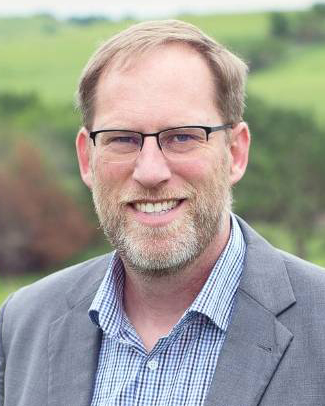
Adam Ahlers.
Adam Ahlers, associate professor of horticulture and natural resources in the College of Agriculture, studies how human-driven environmental changes — such as urban expansion, agricultural intensification and invasive species spread — affects wildlife communities.
Over the past decade, Ahlers' fieldwork has led him to collaborate with natural resources managers and private landowners to find better, science-based solutions to managing and conserving wildlife populations across North America.
For example, his work in wetland ecosystems has demonstrated that muskrats are important indicators of the effects of human activities on these ecosystems, with insights into new areas of research such as disease transmission in human-modified landscapes, applied wetland restoration strategies, and novel ways to analyze and interpret long-term population demographic data.
Ahlers is the author of more than 50 peer-reviewed articles in journals such as Ecology, Biological Conservation and the Journal of Mammalogy. He was named Wildlife Society fellow in 2022.
As a veteran and nontraditional student himself, Ahlers has developed a strong record of implementing innovative teaching methods to connect with his undergraduate and graduate students, including using learner-generated poetry and watercolor paintings to help students learn to identify waterfowl species.
Matthew Kirk
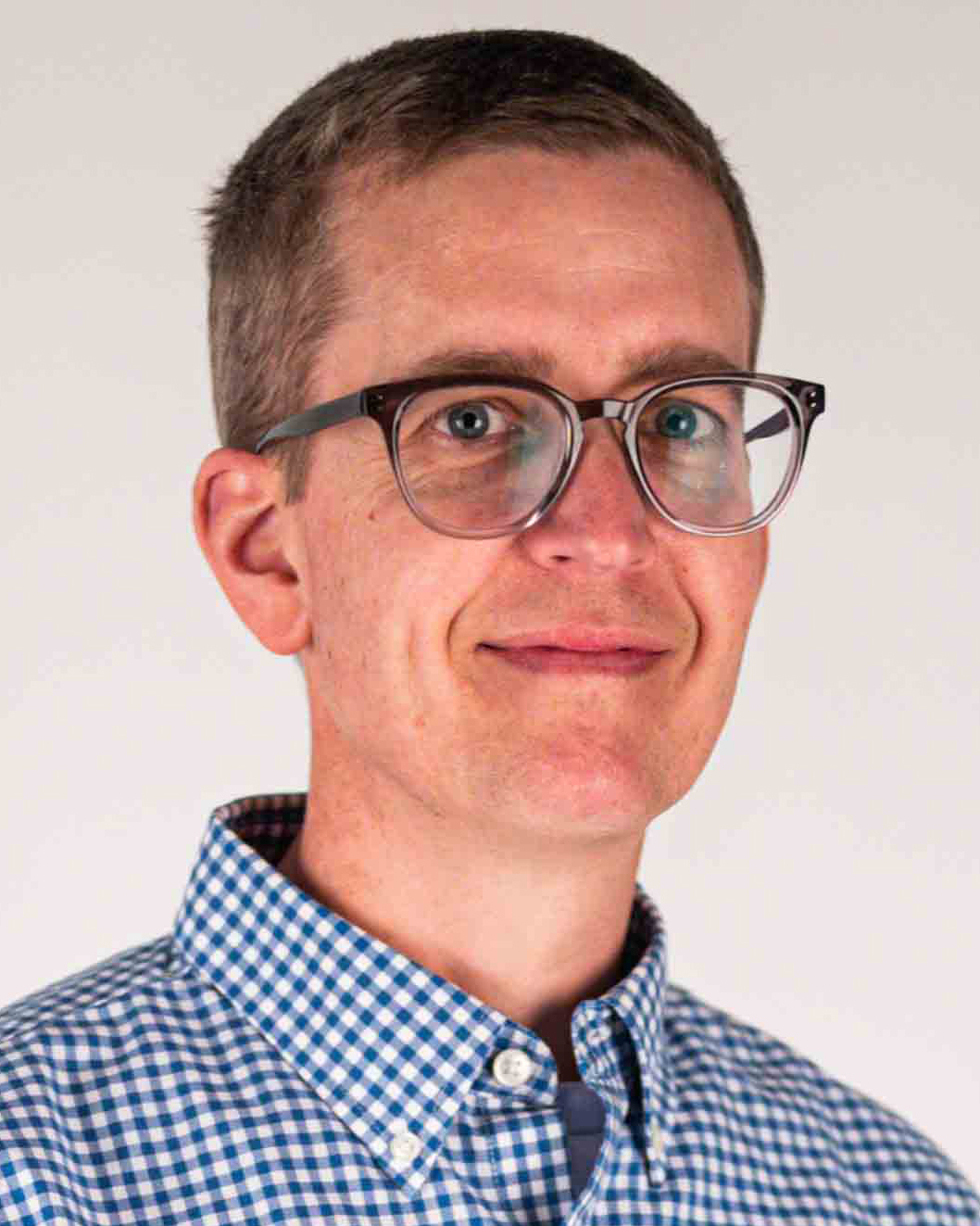
Matthew Kirk.
Matthew Kirk, professor of geology in the College of Arts and Sciences, studies the intersection of geology and life science, with a focus on groundwater resources in Kansas — a key priority for the university as it works to solve water challenges across the state.
Kirk's research has uncovered significant nitrate contamination in a portion of the High Plains Aquifer, and he has helped spread awareness of this issue through direct engagement with well owners, public presentations and media campaigns.
In other research, he has helped identify the impacts of land cover changes on groundwater quantity and quality across the Flint Hills and other grasslands.
Since arriving at K-State in 2012, Kirk has maintained a steady pace of publishing, with more than 40 journal articles to his name in addition to the open-access "Microbiology for Earth Scientists" textbook he published in 2023. He is a fellow of the Geological Society of America.
Through his passion for teaching, Kirk leads the National Science Foundation-funded Kansas Groundwater Geopaths initiative — a collaboration between K-State and Barton and Dodge City community colleges that provides undergraduate students with geoscience research experiences through groundwater quality monitoring in Kansas rural domestic water wells.
Jin Lee

Jin Lee.
Jin Lee, associate professor of psychological sciences in the College of Arts and Sciences, primarily researches workplace safety, health and well-being. He focuses on safety climate, temporary worker risk perception, macroergonomic work system improvement and advanced quantitative methods in research.
Lee's work in occupational health psychology has examined and promoted safety in industry workplaces such as construction and trucking, as well as the National Bio and Agro-Defense Facility. Through his work, Lee has brought a Total Worker Health approach that prioritizes well-being and safety for underrepresented groups and high-reliability organizations.
Additionally, Lee's work has explored innovative interventions at the intersection of neurocognitive science and occupational health psychology. His work includes the development of frameworks for hearing-related interventions that enhance occupational safety in professions such as firefighting and emergency medical services without impairing multitasking capabilities.
With nearly 60 refereed journal publications, Lee was recently recognized as the third most published author globally in the field of safety climates.
He is a dedicated educator who has developed a gentle, approachable teaching style with his undergraduate and graduate students, including weekly tea and snack sessions in his laboratory meetings.
Ping Li

Ping Li.
Ping Li, associate professor of chemistry in the College of Arts and Sciences, leads research that advances sustainable biomanufacturing through biodegradable plastics, enzyme engineering for environmental cleanup, and cancer-related protein targeting. His work drives innovations in biotechnology with real-world applications in health, industry, and environmental sustainability.
Li's impact at K-State includes his work to secure funds for and establish the Protein and Biopolymer Analysis Core Lab — a state-of-the-art facility with cutting-edge instruments staffed by highly skilled professionals that provides advanced sample analysis and technical support for industry partners and researchers across the university.
His efforts have significantly enhanced K-State's research capabilities, supported faculty productivity and strengthened university infrastructure.
Li's research has been supported by preeminent external funders such as the National Institutes of Health and National Science Foundation. His work has been published in top-tier journals, including ACS Catalysis, Chemical Science and the European Journal of Medicinal Chemistry.
Additionally, Li's impact is also reflected in the numerous graduate students, postdoctoral fellows and early-career researchers he has supervised, providing them with the guidance needed to make significant contributions in their respective fields.
Laura Miller
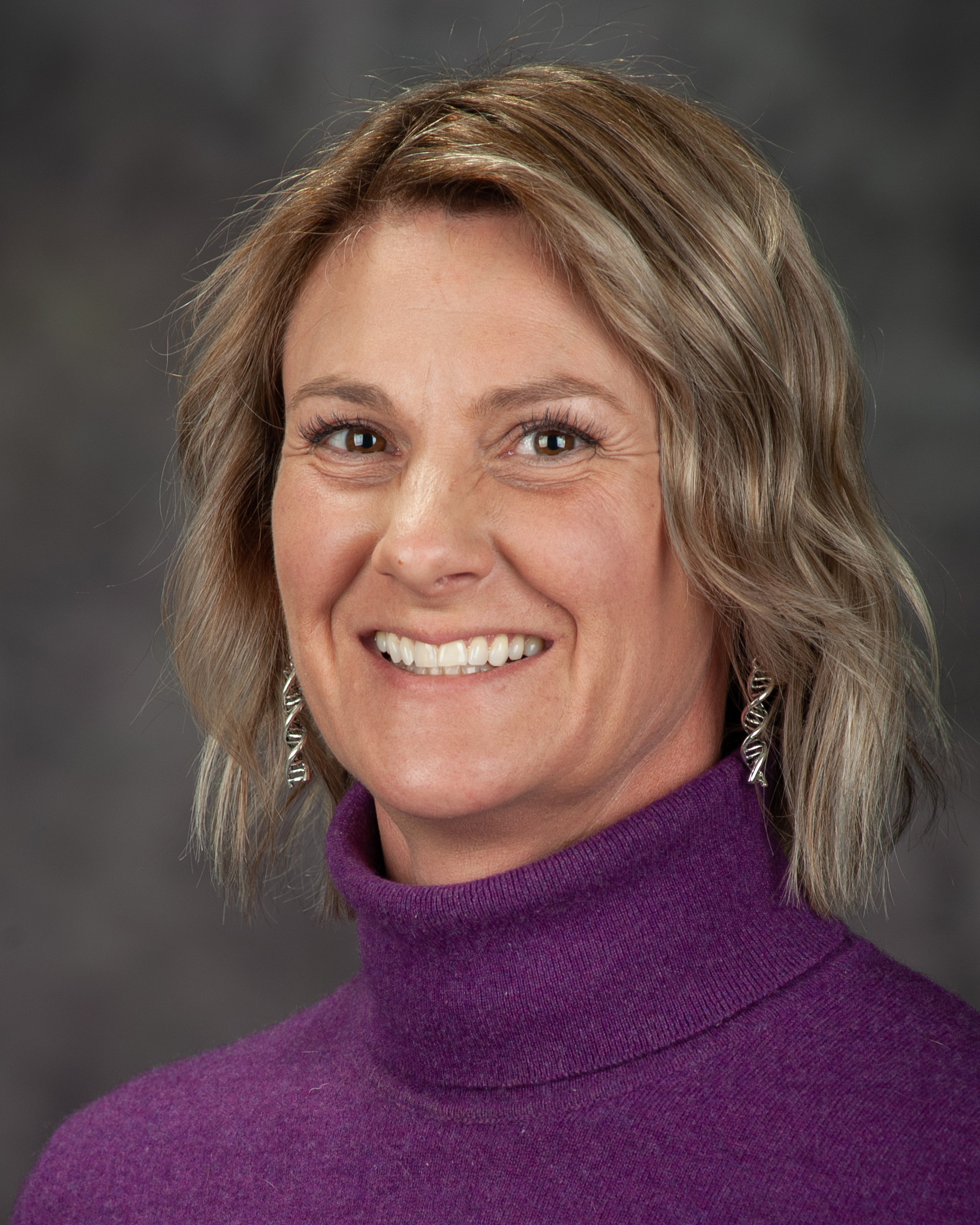
Laura Miller.
Laura Miller, associate professor of virology, immunology and genomics in the College of Veterinary Medicine, has been recognized internationally for her contributions to science and public service, advancing veterinary medicine, agriculture and global biosecurity. She joined Kansas State University in 2023 following a distinguished 21-year career with the U.S. Department of Agriculture.
Miller has established a prominent research program focused on understanding and combating economically significant viral diseases including those impacting the U.S. swine industry, such as porcine reproductive and respiratory syndrome virus, Senecavirus A and emerging livestock diseases.
Her work involves innovative techniques such as 3D cell culture, spatial transcriptomics and development of new vaccine approaches across a wide spectrum of areas, from traditional agricultural and veterinary concerns to One Health initiatives and investigations into chronic human diseases. For example, her collaboration with University of Kansas Medical Center researchers on animal models for chronic lung diseases has led to valuable insights for human health.
Miller has published more than 70 peer-reviewed articles and received more than 2,068 citations, placing her in the top 1% of swine researchers worldwide. Her publications have garnered high citation metrics and awards, such as the 2023 Genes Best Paper Award, which have led to numerous invitations as a featured speaker, and to serve on expert panels, as well as holds leadership roles in national and international research consortia focused on swine viral diseases and animal genomics.
Prathap Parameswaran

Prathap Parameswaran.
Prathap Parameswaran, associate professor of civil engineering in the Carl R. Ice College of Engineering, is an international expert in the implementation and long-term operation of Anaerobic Membrane Bioreactors, or AnMBRs.
His research explores methods to turn waste and biomass into useful products using methods like anaerobic digestion, microalgae, and other eco-friendly technologies to support sustainable energy and resource recovery.
Parameswaran works across disciplines and with industry partners to explore various practical problems in environmental engineering and wastewater management, including the operation of a pilot-scale AnMBR system at K-State's North Agronomy Farm. That work has resulted in fundamental knowledge growth and technology demonstration, including multiple patents that have likely commercial value.
Parameswaran has authored more than 80 peer-reviewed articles, with a career h-index of 34 and an I-10 index of 49 , reflecting his contributions and influence in his field.
In the past five years, Parameswaran has mentored 24 students and provided them with invaluable research experiences. He prioritizes placing undergraduate students in key research roles so that they are prepared for meaningful careers in the field of environmental engineering.
Vaishali Sharda
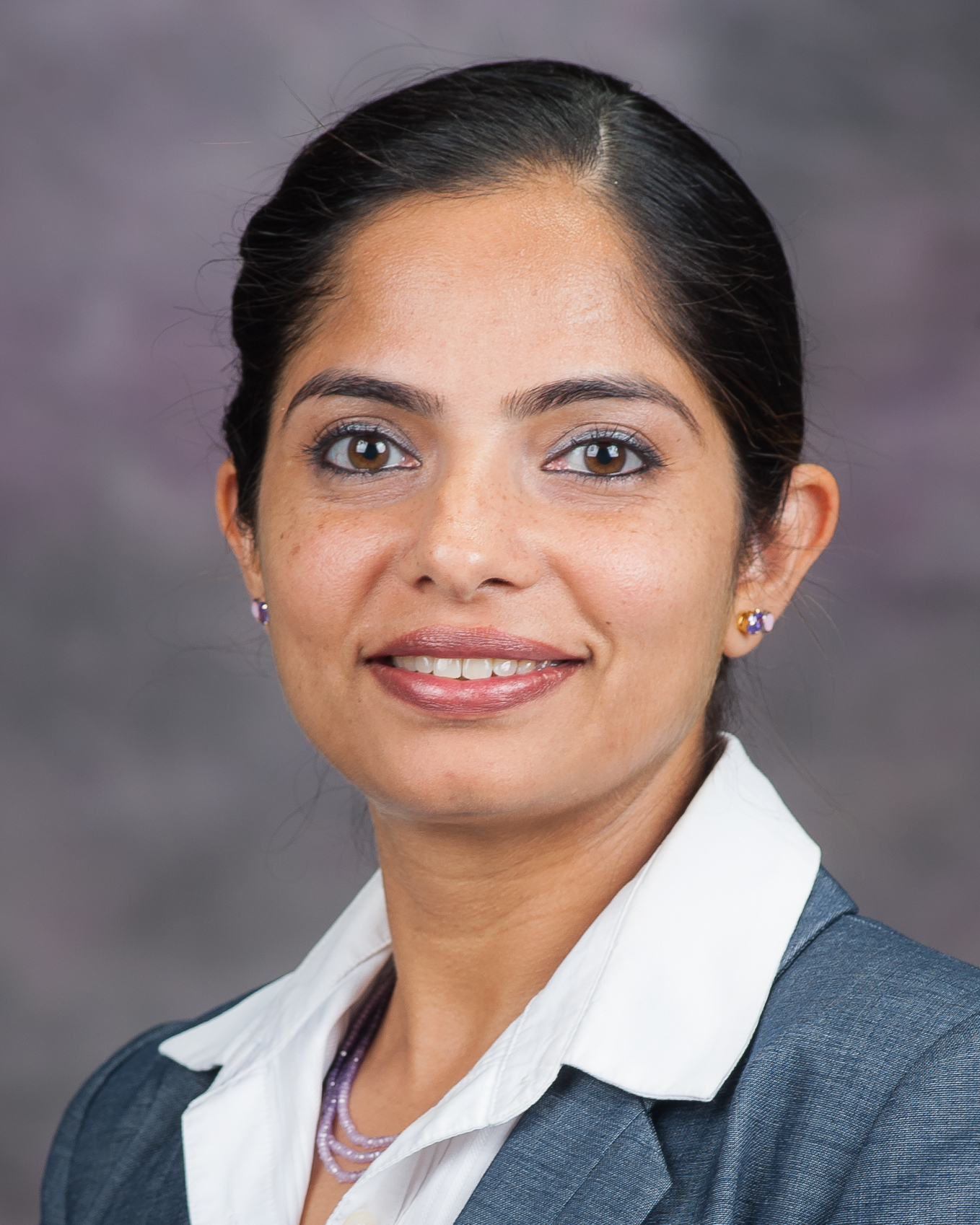
Vaishali Sharda.
Vaishali Sharda, associate professor of biological and agricultural engineering in the Carl R. Ice College of Engineering, is a leading researcher in agricultural water resource management and climate change adaptation.
She is a pioneering expert in enhancing the sustainability and resilience of water resources for crop production in the face of climate change, with a focus on integrating agro-hydrologic models and climate data with farm management scenarios to explore complex dynamics of food-energy-water systems.
Sharda's research in artificial intelligence-driven predictive analytics has led to modeling tools that farmers can use to adapt to and mitigate the effects of future climate change on the water resources of Kansas and the High Plains.
She has published 32 peer-reviewed articles, with several other papers in review, and she has regularly given lectures around the world on climate issues related to agriculture and water resources.
Sharda teaches across the three undergraduate degree programs affiliated with biological and agricultural engineering, including one of the College of Engineering's introductory design courses. She challenges her students to think independently using open-ended problems without defined answers.
Kaliramesh Siliveru

Kaliramesh Siliveru.
Kaliramesh Siliveru, associate professor of grain science and industry in the College of Agriculture, is a prolific scholar and researcher in the field of grain processing and safety.
His research focuses on developing mitigation strategies to address food safety issues in grain product processing, an often overlooked part of the food supply chain that is vulnerable to foodborne illness contamination. Siliveru's research has enhanced the industry's understanding of microbial contamination sources, and it has identified mitigation strategies that flour millers now regard as essential in preventing illness outbreaks.
Additionally, Siliveru's research has been crucial in developing nondestructive methods of assessing grain properties, designing processing methods to address the growing needs of the gluten-free and plant protein industries, and creating tools for characterizing caking behavior in powders.
Since receiving his doctorate at K-State in 2016, Siliveru has published 75 peer-reviewed journal articles and delivered 132 conference presentations, including 53 invited talks.
Siliveru is committed to training the next generation of grain scientists, and his impact as an advisor is reflected in the quality of work and numerous awards received by his research students.
Valentina Trinetta
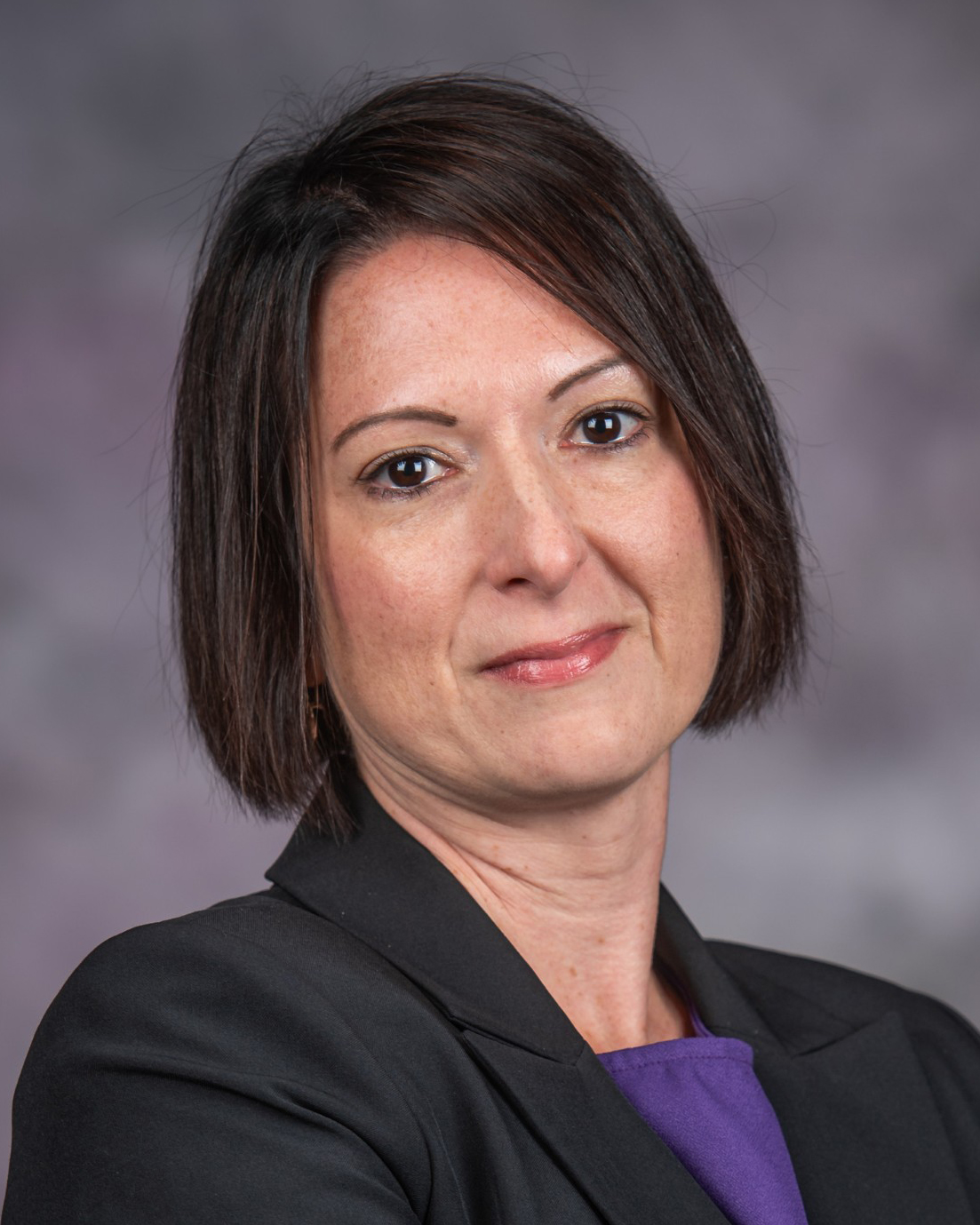
Valentina Trinetta.
Valentina Trinetta, associate professor of food safety and public health in the College of Health and Human Sciences, is an internationally recognized expert in food safety, microbiology, and public health, whose research has directly influenced industry standards, public health policies, and scientific advancements.
Her research focuses on the safety of the farm to food supply chain, primarily in understanding foodborne pathogen ecology and identifying microbial entry routes into the food supply chain.
Trinetta's work on pathogen inactivation, microbial biofilms, and foodborne disease prevention has led to industry implementation of better sanitation protocols and intervention strategies, including new science-based interventions for controlling multidrug-resistant pathogens such as listeria and salmonella in the supply chain.
Trinetta is the author of more than 60 peer-reviewed publications, including a key chapter on fruits and vegetables in the "Compendium of Methods for the Microbiological Examination of Foods," a prominent textbook in the field of food microbiology. As part of her five-year appointment to the U.S. Department of Agriculture's National Advisory Committee on Microbiological Criteria for Foods, Trinetta has played a prominent role in shaping national food safety regulations.
In her teaching role, Trinetta has been a transformative mentor and educator, having directly advised more than 50 students.
Shirley Tung
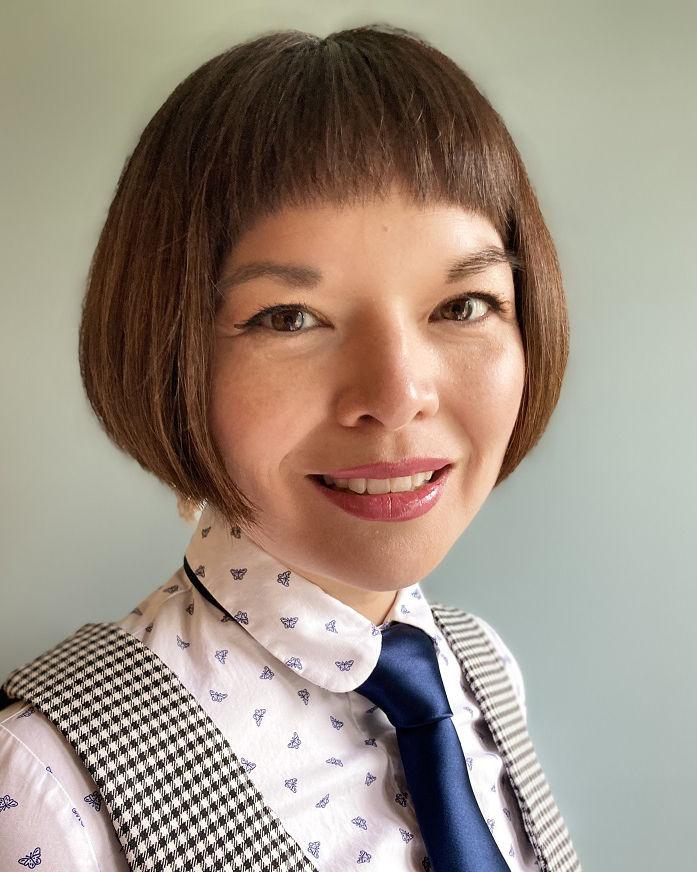
Shirley Tung.
Shirley Tung, associate professor of English in the College of Arts and Sciences, specializes in 17th- and 18th-century British literature and is named as a "top emerging scholar in the field" by the American Society for Eighteenth-Century Studies.
Her current research on 17th-century print culture and 18th-century life-writing has been funded by the Big 12 Fellowship and prestigious research fellowships from the Bodleian Library at the University of Oxford, the New York Public Library, and the William Andrews Clark Memorial Library at the University of California-Los Angeles. She is also a Visiting Scholar at the University of Oxford Centre for Life-writing at Wolfson College.
Tung has published ten peer-reviewed articles and essays on 17th- and 18th-century biography, poetry, print media, and travel writing. In addition, her expertise in 17th-century print culture led to a commission by Bodleian Library Publishing to write "John Milton and the Freedom of the Press" — a general audience book on Milton’s illegally published pamphlets on divorce, regicide, and censorship during the English Civil War.
In the classroom, Tung known for kinesthetic experiences that prompt students to assume roles of author and audience, scholar and cultural explorer. She challenges students to engage with course material by putting a modern spin on older texts — having them perform rap battles between rival 18th-century poets or enact trench warfare in a poem using paper ammunition.
Her teaching has received accolades at the university, national, and international levels, such as the Ron Gaches Award for Undergraduate Teaching, the American Society for Eighteenth-Century Studies Innovative Course Design Award and the British Society for Eighteenth-Century Studies teaching prize.
Lydia Zeglin
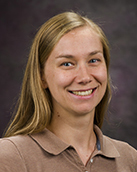
Lydia Zeglin.
Lydia Zeglin, associate professor of biology in the College of Arts and Sciences, centers her research on microbial ecology, microbial diversity and nutrient cycling processes in streams and soils, particularly at Long-Term Ecological Research stations like the Konza Prairie.
Many of her projects, including several supported by National Science Foundation grants, conduct empirical research on ecosystem responses and recovery from stress factors such as drought. The work focuses on how microorganisms control stream water quality and soil health, including how bison and cattle affect the soil biodiversity that supports soil fertility, and how stream biofilms recover from drying.
She was recently invited to serve as an NSF-supported investigator in Antartica, where her research studies the effects of changes in glacial melt and stream flow on organisms like bacteria, cyanobacterial mats, phytoplankton and microinvertebrates in the McMurdo Dry Valleys.
Zeglin's excellent publication record includes more than 50 peer-reviewed contributions, with nearly 7,000 citations. She regularly serves on grant review panels for various National Science Foundation programs, as well as several other U.S. and international scientific funding agencies.
On campus, Zeglin has served as a mentor to three post-doctoral researchers and 12 graduate students, and she has provided valuable research experiences in her laboratory to numerous undergraduate students.
###
